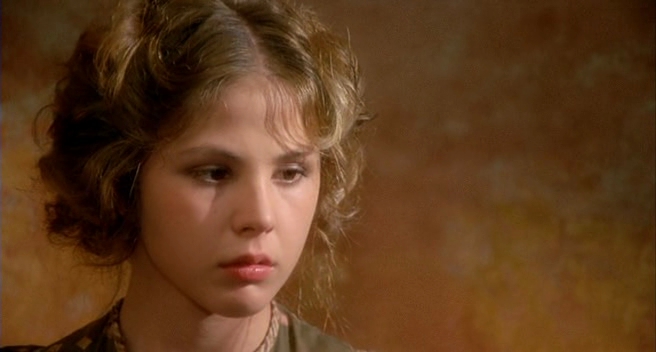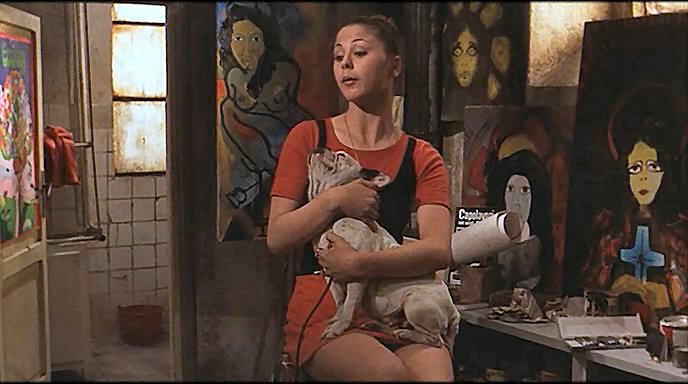1. Life
Ottavia Piccolo's life has been deeply intertwined with her acting career, which began at a very young age and was shaped by influential figures in Italian theatre.
1.1. Birth and Early Life
Ottavia Piccolo was born on 9 October 1949, in Bolzano, Italy. She began her acting career at the remarkably young age of 11, making her stage debut in the adaptation of The Miracle Worker. This early foray into theatre was under the direction of the esteemed Italian director Luigi Squarzina, laying the foundation for her extensive career. She officially debuted in the acting world in 1962.
1.2. Education and Early Career
Piccolo's early career was significantly influenced by her collaborations with renowned theatre directors. In 1964, she met Giorgio Strehler, a pivotal figure in Italian theatre, who directed her in stage adaptations of Brawling in Chioggia and King Lear. Her participation in these productions under Strehler's guidance further honed her acting skills and established her presence in the theatrical landscape before she transitioned more extensively into film.
2. Acting Career
Ottavia Piccolo's acting career is marked by her extensive work across Italian and French cinema, as well as her notable contributions to voice acting. She has appeared in over 45 films since her debut in 1962, showcasing her remarkable versatility.
2.1. Italian Cinema
Piccolo made her film debut in 1963 in The Leopard, a highly acclaimed film directed by Luchino Visconti. Her performance in the 1970 film Metello, directed by Mauro Bolognini, earned her the Best Actress Award at the 1970 Cannes Film Festival. For the same role, she also received the Nastro d'Argento for Best Actress, solidifying her reputation as a talented young actress. Throughout her career, she continued to contribute significantly to Italian cinema, appearing in numerous productions such as Serafino (1968), The Thirteen Chairs (1969), Bubù (1971), and Trastevere (1971). In later years, she also returned to Italian television, notably starring in the series Chiara e gli altri, where she portrayed the character Livia Malfatti. The show ran for two seasons.


2.2. French Cinema
In addition to her work in Italy, Ottavia Piccolo achieved success in French cinema. Her French film debut was in the 1971 film The Widow Couderc, directed by Pierre Granier-Deferre. Two years later, she appeared in The Edifying and Joyous Story of Colinot, directed by Nina Companeez. Piccolo also featured in several French television shows throughout the 1980s and 1990s, expanding her international presence.
2.3. Voice Acting
Piccolo has also cultivated a unique career as a voice actress. She is widely recognized internationally for providing the Italian voice of Princess Leia Organa, originally portrayed by Carrie Fisher, in the iconic Star Wars franchise. Notably, she was the only main cast member from the Italian dubbing of the original trilogy to reprise her character in the sequel trilogy. This was due to the passing of her fellow voice actors, Stefano Satta Flores and Claudio Capone, before the release of the sequel films.
3. Awards and Recognition
Ottavia Piccolo has received significant accolades throughout her career, recognizing her talent and contributions to the film industry.
Her most prominent award came in 1970 when she won the Best Actress Award at the 1970 Cannes Film Festival for her role in the film Metello. For the same performance, she was also honored with the Nastro d'Argento for Best Actress, one of Italy's most prestigious film awards.
4. Filmography
Ottavia Piccolo's extensive filmography includes appearances in various films and television series across Italian and French productions.
- The Leopard (1963)
- Serafino (1968)
- The Thirteen Chairs (1969)
- Metello (1970)
- Bubù (1971)
- Million Dollar Eel (1971)
- La Veuve Couderc (1971)
- Trastevere (1971)
- La vita di Leonardo Da Vinci (1971, TV series)
- L'histoire très bonne et très joyeuse de Colinot trousse-chemise (1973)
- Antoine and Sebastian (1974)
- La Cosa Buffa (1974)
- Zorro (1975)
- Mado (1976)
- La Certosa di Parma (1982, TV miniseries)
- Mino (1986, TV miniseries)
- The Family (1987)
- Da grande (1987)
- Growing Up (1988)
- Baroque (1991)
- Condominio (1991)
- The Long Silence (1993)
- Bidoni (1995)
- Marciando nel buio (1996)
- Do You Know Claudia? (2004)
- A Good Season (2014, TV series)
- 7 Minutes (2016)